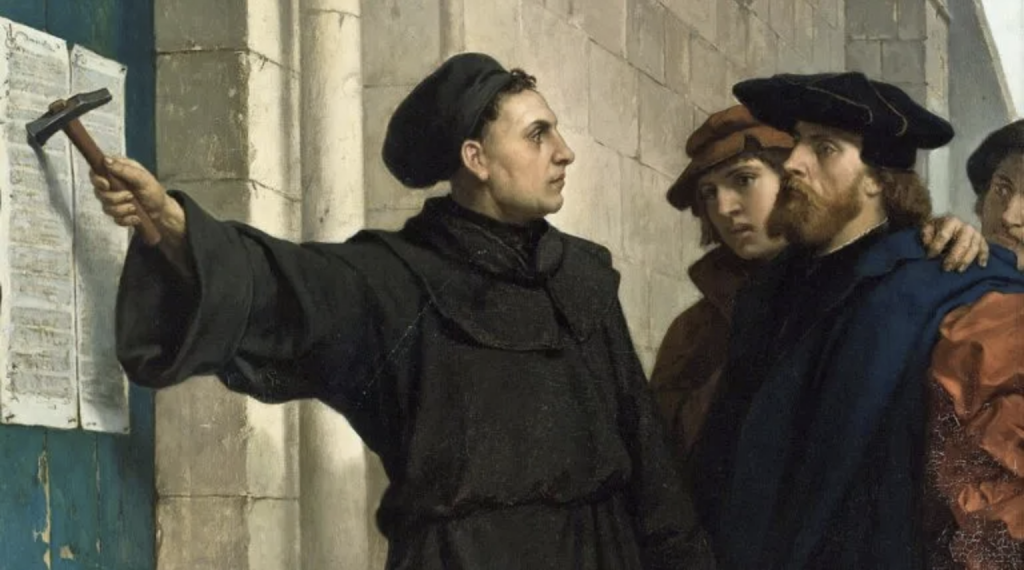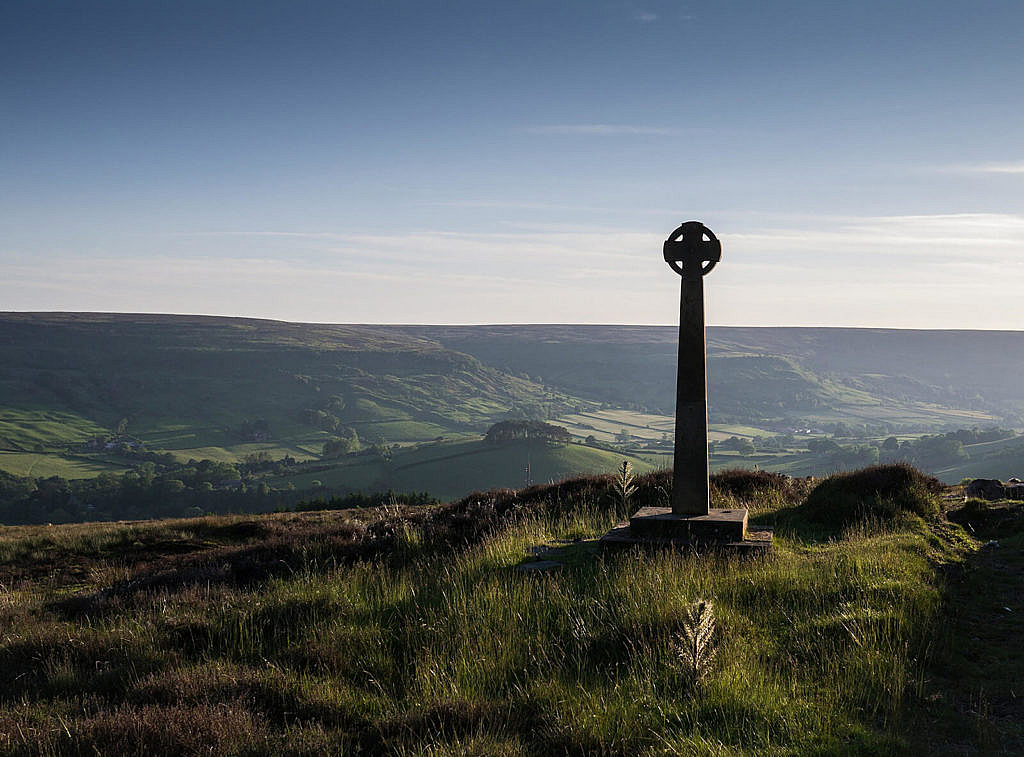
Training the Next Generation of Reformers
Martin Luther did not mean to start the Reformation. In 1517, Luther, a teacher of theology in Germany, posted some items for an academic discussion on the church door in Wittenberg (really a community bulletin board back then). At this point in his career, he had no intention to break away from the Roman Catholic church—as a “doctor” of theology Luther had the right, and the obligation, to express concerns about the church. Luther was attacking the practices of some extreme “indulgence preachers” who were basically selling get-out-of-Purgatory-free cards (indulgences). Luther had no idea how far up the chain of authority this corruption went. In fact, Pope Leo X gave his official blessing to this indulgence fund-raiser in order to finance his massive building project at St. Peter’s Basilica, the largest church in Christendom.
Many factors led to what we now call the “Reformation.” One of the main causes of the Reformation was the rediscovery of Biblical Greek and Hebrew. Most of the Reformers were serious students of Greek and Hebrew, and the insights they gained from this engagement with the Scriptures fueled the momentous changes that many of us celebrate around Oct. 31. One of the goals of the contemporary revival of Christian education is to continue this legacy by training and equipping the next generation of leaders to live out the Gospel in culture, church, and in their homes. We want to inspire students who will bravely challenge the status quo, motivated by what they see in Scripture. In this, we hope to train the next generation of Reformers.
The Reformation grew out of the cultural movement we call the “Renaissance.” To simplify greatly, the Renaissance looked back to the artistic and literary achievements of ancient Greece and Rome, which in turn fertilized a blossoming of the arts and cultural life. The artists Leonardo da Vinci, Michelangelo, the composers Thomas Tallis and Giovanni Palestrina, and the writer Dante Alighieri all belong to this period. In northern Europe, the Renaissance took a more “bookish” turn. Sparked by Johannes Gutenberg’s invention of the movable-type printing press, northern Europeans could suddenly produce and exchange ideas quickly through the printed word. Towns like Basel in Switzerland became centers of scholarship and book-production. Erasmus of Rotterdam led this movement through his scholarship and his wit. With biting satire and vast learning, Erasmus criticized the many moral and spiritual failings of the Church.
However, in the ensuing conflict, Erasmus remained loyal to the Roman church, unlike many of his protégés. Johannes Oecolampadius worked closely with Erasmus in Basel, as they produced the first printed edition of the Greek New Testament, as well as new editions of classic Christian thinkers and pastors like Gregory of Nyssa, John Chrysostom, and Basil of Caesarea. Oecolampadius was born Johannes Huszgen, but after mastering Greek (a rare feat at the time) he changed his name to the Greek equivalent of his German name (oikos = “house” and lampa = “lamp” in Greek). As Oecolampadius dove deeper into the original Greek of the New Testament and the Hebrew of the Old Testament, he joined the ranks of the Reformers. Eventually, their devotion to God’s revealed Word led them into sustained conflict with Roman church officials, and finally into a full “Reformation.”
Church historian Jaroslav Pelikan has called Martin Luther an “obedient rebel.” Luther did not intend to reject all of the Church’s teachings. Nor did he want to dismiss all of church history prior to the Reformation. Luther and the other Reformers loved and valued church history. They respected their “fathers in the faith.” Other Reformers who loved and valued the church fathers (the classic Christian authors of earlier church history) included Martin Bucer, Peter Martyr Vermigli, John Calvin, Ulrich Zwingli, and Heinrich Bullinger.
These Reformers shared the goal of returning the church to a purity and fervency that they read about in the New Testament (in the original Greek) and in the church fathers (many of whom wrote in Greek). They did not want to simply reject all of previous church history—they saw themselves as truly “catholic,” in one sense of the original Latin word. Catholicus means “universal,” and the early Reformers tried to reform Christian worship and church practices according to what Christians had “universally” believed and practiced.
As teachers and educators in the classical Christian tradition, we seek to follow in the footsteps of these Reformers, who set in motion the forces that would create modern Europe, and eventually spurred the Protestant migrations in the Americas. America owes much to the Reformation and its vision of a society and culture where every member seeks to serve God, as well as use their God-given abilities for the good of the larger society. Luther famously said that a mother who changes a baby’s diapers glorifies God when she does it in faith. Though one might quibble with the analogy, the point remains. In the Christian school movement, we value all of the gifts that God has given to our students.
Our students will most likely not be mentioned in later history books. Most will faithfully labor for the glory of God and the good of their communities, wherever God calls them to serve. They will change diapers, invent technologies, cook meals, balance accounts, pilot space-craft, and all to the glory of God. We hope that they will always make time for worshiping the Creator and for diving deeply into His revealed Word. And we hope that their brief exposure to the classics and the classical languages will enable them to gain insights to lead a new Reformation. One motto of the Reformation was Ecclesia reformata, semper reformanda (“the church reformed, always reforming”). We aren’t there yet. We have a long way to go. But, in a favorite analogy of scholars in medieval times, we stand on the shoulders of giants. May we persevere … and hope to see a little further down the road.
[Originally posted at Studium et Liturgica. An adapted version of this article was published at Intellectual Takeout.]
For Further Reading
An Introduction to Classical Education – Christopher Perrin
Building the Christian Academy – Arthur Holmes
Getting the Reformation Wrong: Correcting Some Misunderstandings – James R. Payton, Jr.
Ancient Discipline and Pristine Doctrine: Appeals to Antiquity in the Developing Reformation – Gregory Soderberg
The Reformation as Renewal: Retrieving the One, Holy, Catholic, and Apostolic Church – Matthew Barrett
Church History (vol. 2): From Pre-Reformation to the Present Day – John D. Woodbridge & Frank A. James III



